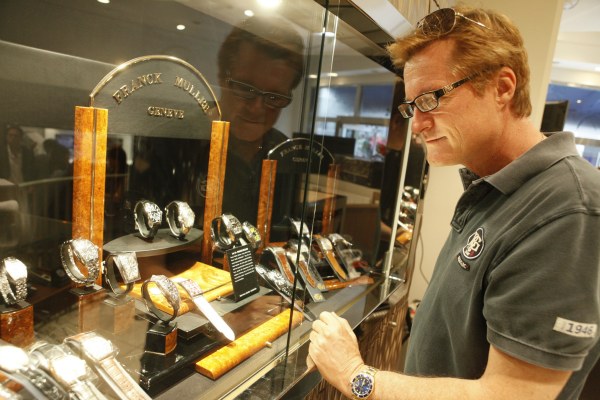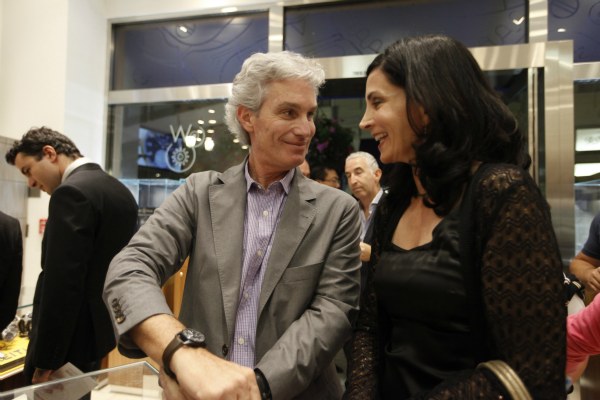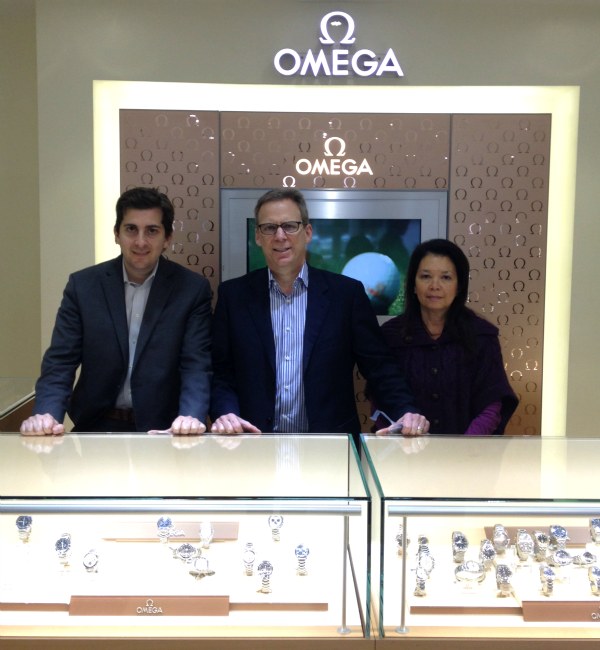
Like all industries, the world of timepieces is an ecosystem. Watches are designed, produced, and eventually purchased. That latter part of the necessary cycle is one that is complex and difficult to understand – especially for watch writers and enthusiasts who typically have only their own experiences to reference. Most of the time, the relationship that brands have with journalists and consumers is very different and separate than the relationship that watch retailers have with journalists and consumers.
This separation isn’t always a good idea and often causes a large gap between the perceptions people buying watches have and those that the people responsible for communicating about watches have. An overall goal of mine is to better integrate the business of the watch industry with media on the watch industry. As part of this larger goal I recently conducted a series of surveys designed to learn more about the watch retail environment, experiences that retailers have on a daily basis, and what role consumer education plays in the sales of high-end timepieces.
One result of the surveys was the discovery of an important fact that I cannot stress enough. Whether it is surprising or not, the overwhelming consensus among everyone I interviewed was that watch-educated consumers not only buy more watches, but buy more expensive watches. Education in this context really means how much information and knowledge a specific consumer has about timepieces in general, mechanical movements, and brand history/values. We are not talking about book smarts or IQ.
To best present the findings of the survey, I will list a series of questions or statements and show you what key retailers had to say in regards to them. I want to thank the following people and businesses for their time and input. Thank you to Roberto Chiapelloni at Manfredi in Greenwich, Connecticut, Rob Caplan at Topper Jewelers in Burlingame, California, Greg Simonian at Westime in Los Angeles, California, Jasmine Bapic at Audemars Piguet in Miami, Florida, and Larry Barkley at Tourneau in New York, New York.

The Importance Of Educated Watch Sales People
The above watch retailers were chosen by me for a range of reasons. They are either very large stores or have a reputation for having quality sales people. Each of them responded as proudly having highly educated watch sales people or at the least have policies that make efforts to educate their sales people. Stores like Manfredi ensure their staff take part in learning activities as offered from representatives of the brands, and most have senior salespeople who travel to the brand’s headquarters and visit the large watch shows.
Each of the stores explained that being able to talk on the same level with consumers about watches is very important. Manfredi for example even has a watchmaker in the store who can discuss movement complications directly with the consumers. They explain that knowledgeable salespeople help consumers “feel more confident about their purchases.”
All the stores explained that even when a salesperson isn’t as educated as they could be, passion and enthusiasm is an essential part of increasing consumer confidence. Topper explains how enthusiasm helps consumers want to hear more about the details of watches and the brands. Audemars Piguet explains how more and more customers are coming into their brand boutiques with high levels of information – which raises the education bar for the staff inside of retail stores.
Westime agrees, indicating that especially in the US, more and more customers each year “are showing interest in the history and inner workings of watches.” It is therefore necessary to meet the level of expectations from repeat and potential customers. At Tourneau, “a major part of the [sales] ceremony depends on [the salesperson] selling the client on the passion of the brand and their DNA.” The overall message here is that salespeople who are educated about watches in general and the product in particular seem to be a highly important part of the sales process for educated and non-educated consumers a like.

Educated Consumers Buy More Watches Overall
“Absolutely” was a very common response to the question of whether educated consumers are more valuable and buy more watches. Each of the retailers also stated that consumers are interested in the inner workings of watches – especially those looking at higher-end pieces. Tourneau claims that “over 90% of [consumers] are very interested in [the history, function, and technical specifications of watches].” They explain that for customers, “one of the joys of owning a complicated timepiece is being able to communicate about it to their friends and family.”
Audemars Piguet suggests that “an educated customer is even more valuable when they are able to share their knowledge and appreciation with others.” This would effectively make all educated brand enthusiasts mini brand ambassadors. Audemars Piguet also shares that education “is one of the most critical factors” in making a decision to buy an expensive watch.
All retailers mentioned increasingly educated watch consumers showing up in stores over the last few years. Manfredi and Topper both shared that they are extremely impressed by the knowledge and information many consumers have before they walk into their stores. While Audemars Piguet stresses that “there is no such thing as an easy sale,” Westime explains that knowledgeable customers make for more simple transactions. These “customers know exactly what they are looking for, and once they find it, they buy it.” Topper welcomes brands with large promotional campaigns that often drive customers into the store (“watches with enormous marketing machines behind them sell themselves”), but also finds joy in teaching customers about less well-known or niche brands.
The overall picture given by the retailers seems to be that customers are overwhelmingly interested in both the inner workings of watches and brand stories and histories. This would contradict statements that many consumers (at least in the US) buy just for looks or brand names. Customers expect a high level of knowledge from retailers, but often because they have a high-level of knowledge themselves. Being able to connect mentally with a retailer who has a product that a consumer wants is a key factor in purchases.
A further interesting finding is that all the retailers reported an increase in sales when customers are offered brand or product education in the store. Topper for example warns that sales people must carefully gauge what customers are interested in, but everyone suggested that after being intelligently presented with a product and thus educated on that product – customers are more likely to make purchases. This means that consumers who have knowledge on products either before or after coming into a store are more likely to make purchases. Audemars Piguet says it well when stating that “these days, higher-priced watches are not sold to those who do not understand what they are buying.”
Most Higher-End Watches Are Purchased By Educated Consumers
Westime reminds us that most people buying very high-end watches are not first time watch customers – “they usually own at least one other fine timepiece before they are interested in obtaining a very exclusive watch.” Once again, the resounding response from all retailers was “absolutely” when asked whether it was educated consumers who purchased the most expensive product.
Manfredi explains that “once a client understands what has gone into the making of an exquisite timepiece and the value that it translates into – it helps with the ‘sticker shock’ some clients may experience.” They further suggest that “for us, the sale of high-end timepieces is frequently to clients who are educated about watches, the more high-end [the watch], the more education [is found in clients].”
Tourneau shares that higher-priced watches are “sold more to clients with a high watch eduction.” The consensus among all the retailers is that high watch education is strongly linked to buying the most expensive watches. Tourneau among others suggests that much of this is due to those consumers understanding the value involved in the time and effort required to make the best watches. It seems to really come down to educating people about the value proposition of those watches and having a very good understanding of what their money is buying.

Retailers Can Make Or Break The Sales Experience
Tourneau states that for them, “the largest majority [of customers] have an idea of what they want, but not what watch brand can meet their needs.” Topper mentions how their goal is to understand and connect with everyone who comes into their store or contacts them. Each customer has different interests, but not being able to give them the right information can turn off even someone who wants to buy something. “The salesperson’s job isn’t to sell the product to them, but instead to learn about how they feel about the thing they came in to see.”
Sometimes a consumer will enter a store interested in one product, but this may not be the one that actually meets their needs. There is a difference between an informed and educated consumer. The best retailers will be able to accurately identify what a consumer wants and match them with the right watch. This not only can help match a customer with the right timepiece, but will also increase their level of education. Failing to do this can prevent someone from buying a watch.
Manfredi amongst others explains how at other times customers come into stores with incorrect information about watches saying that “there are clients who can develop ideas about brands that can be hard to overcome.” Topper explains that success for them is in helping a customer find the product they want versus selling them a specific watch. Education can only take a consumer so far and neglectful sales staff can hamper good business.
Watch consumers who visit retailers with knowledge about watches are often being educated by the watch media – these days mostly online. Watch retailers are an essential part of offering consumers hands-on experiences and offering answers to questions that consumers have. Though more often than not, watch retailers are purchase stops rather than destinations for watch consumers – and they must be given good reasons to enter watch stores in the first place. Retailers, brands, and the watch media should work together more closely to better understand what the customer experience is like, and how to better improve consumer education and interest in watches.
